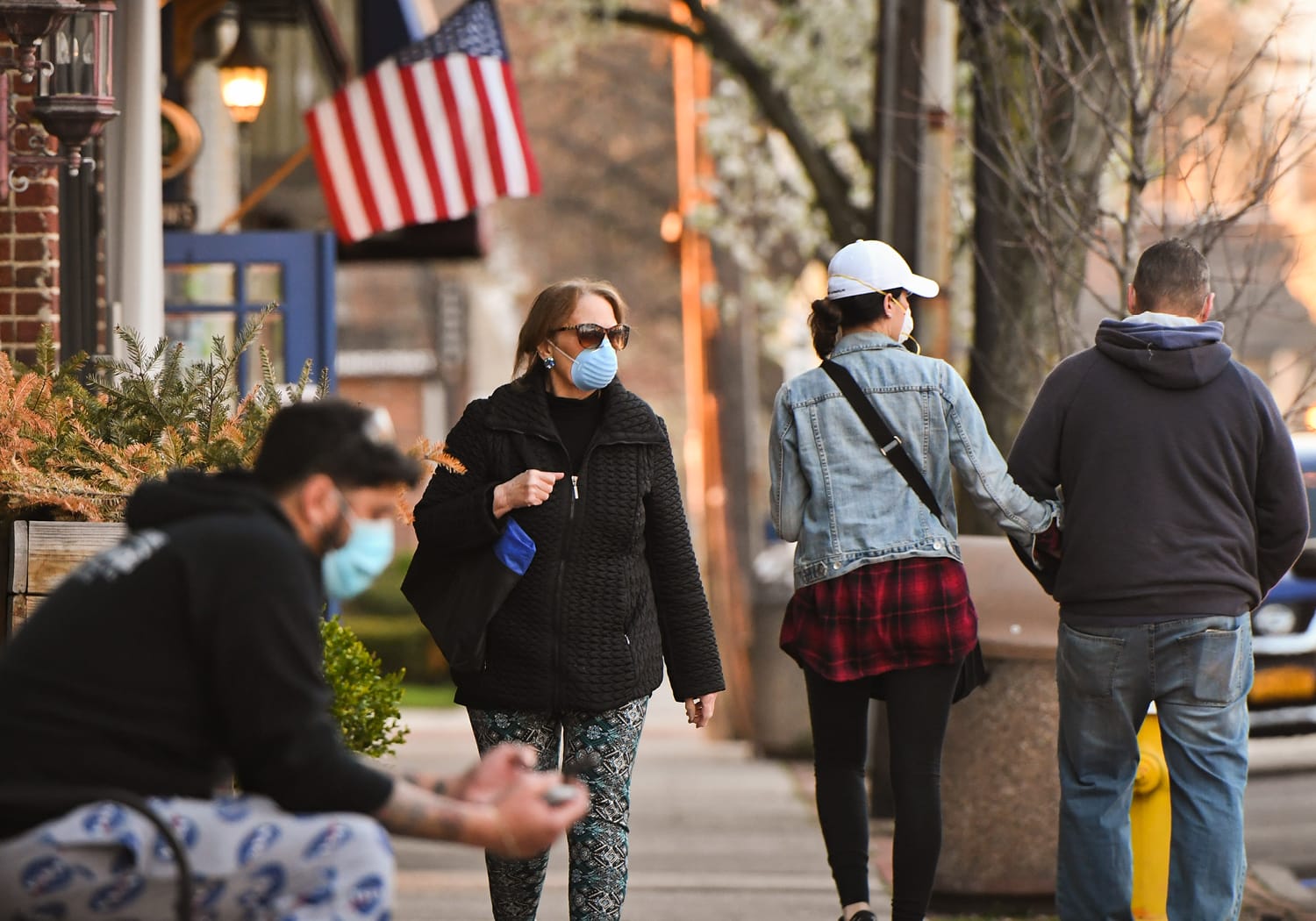
Coronavirus Is Fueling a Surge in Hate Crimes
As the coronavirus pandemic spreads, so does fear—fueling panicked gun purchases as well as racism and xenophobia, a very dangerous combination.
COVID-19 is fueling a surge in hate, particularly against Asian Americans
Fear is a reasonable reaction to the COVID epidemic. Most of us know people who are high risk, and many are high-risk ourselves. What is unreasonable is to allow this fear to manifest as racism and xenophobia.
Historically, fear of illness has often been leveraged to fuel racial and ethnic discrimination, and this pattern is repeating today. Citing the virus’s emergence in Wuhan, China, people searching for a scapegoat to blame for the pandemic’s spread have targeted Chinese Americans and other members of the Asian Pacific Islander community, encouraged by xenophobic rhetoric from government officials, including the president. Others have pinned blame on Jews and immigrants.
This increase in anti-Asian sentiment has led to a reported surge in hate crimes against Asian Pacific Islanders, both within the US and internationally. In Seymour, Connecticut, the owners of a Chinese restaurant received a series of harassing phone calls in which the callers threatened to come to the restaurant and shoot them. In Midland, Texas, three members of an Asian-American family were stabbed by a man who thought they were “infecting people with the coronavirus.”
Racist reactions to people wearing face coverings may further endanger communities of color during this pandemic. Though the CDC has recommended that people wear cloth face coverings in public, members of communities of color are worried that covering their faces in public may have dangerous side effects. Many Asian Americans report feeling targeted when they wear masks in public, and men in black and brown communities report fear that wearing masks or other homemade face coverings will increase their risk of being racially profiled. This is a particularly dangerous issue in black and brown communities already at higher risk relative to the virus.
COVID-19 is fueling a surge in gun purchases
Though research has demonstrated that owning a gun does not actually make us safer, many Americans, fearing potential societal breakdown or hate-motivated attacks, have purchased firearms over the past few months, driving the largest spike in gun purchases in recent history.
The gun lobby and the politicians it holds sway over have long leveraged fear of societal breakdown merged with racial bias to push gun sales. In a recent video, a former congressman from Georgia drew on fear and uncertainty related to the pandemic to encourage people to arm themselves against “looting hordes from Atlanta.”
Hate and guns are a deadly combination
In too many cases, the presence of a firearm turns bigoted threats into deadly assaults. Guns are often employed as tools of violent hate and extremism, facilitating attacks that sow fear throughout entire communities. Over 10,000 people each year are victims of hate crimes involving the use or threatened use of firearms.

People who have committed a violent crime are much more likely to commit subsequent acts of violence. Researchers have found, for instance, that individuals with a prior conviction for a violent misdemeanor are nine times as likely to commit subsequent violent crimes and subsequent firearm offenses. And yet, in most states, people who have been convicted of violent hate crimes can easily obtain a weapon designed to end human life.
Policy solutions to address armed hate
There are a number of legislative ways to address armed hate crimes. First though, legislators should pass foundational gun safety policies such as universal background checks, in order to ensure that everyone who purchases a firearm is eligible to own one, as well as assault weapon regulations and large-capacity magazine bans, which can help reduce the severity of any attacks that cannot otherwise be prevented.
Measures specific to hate crime include:
Extreme risk protection orders: In 19 states and the District of Columbia, extreme risk protection order (ERPO) laws provide law enforcement with a critical avenue for disarming people who pose a threat to public safety. Once an ERPO is issued, the respondent must turn over their firearms to law enforcement for the duration of the order, and is ineligible to purchase new firearms. In 2019, prosecutors in Snohomish County used an ERPO to disarm the suspected regional leader of the Neo-Nazi group Atomwaffen Division, who had been amassing firearms and holding firearm training “hate camps” for other Atomwaffen members in western Washington.
Disarm Hate legislation: In many states across the nation, individuals convicted of hate crime misdemeanors remain eligible to purchase firearms. Legislation to address this dangerous gap in our laws passed the House Judiciary Committee in September 2019. The Disarm Hate Act, introduced by Rhode Island Representative David Cicilline (and its Senate counterpart introduced by Pennsylvania Senator Bob Casey), would make people ineligible to acquire and possess firearms after they have been convicted of hate or bias-motivated misdemeanors that involve the use or attempted use of physical force, the use or threatened use of a deadly weapon, or other credible threats to physical safety.
During this uncertain time, we must take decisive action to protect all Americans from the dangerous nexus of hate and guns, and stand up to armed hate in all its forms.